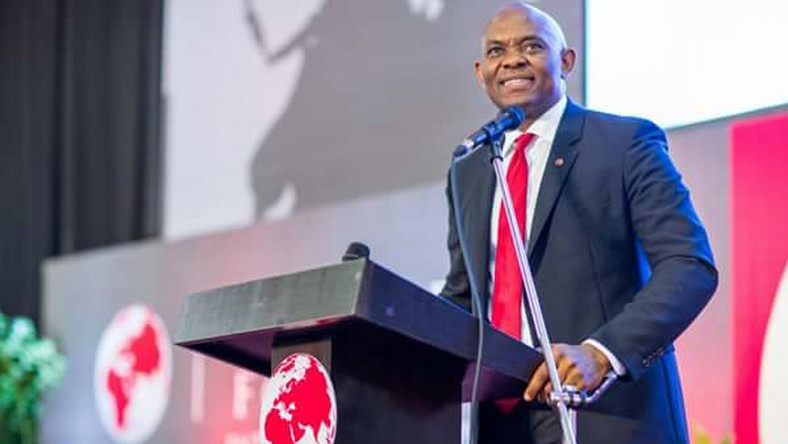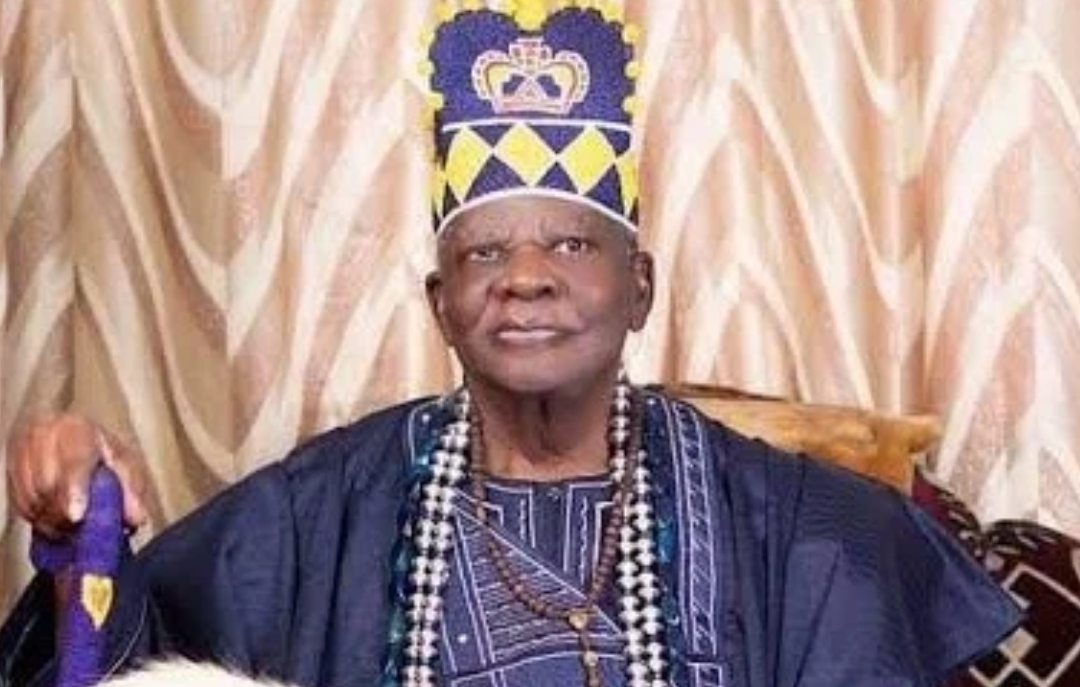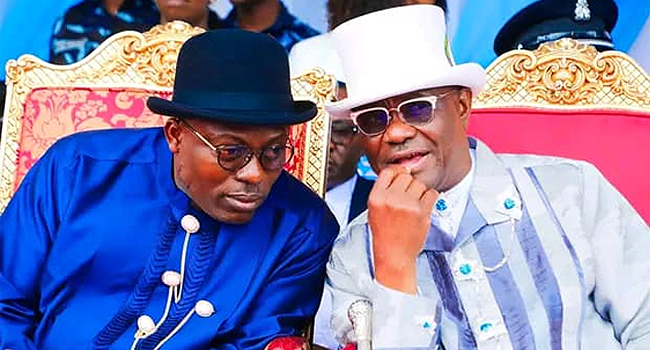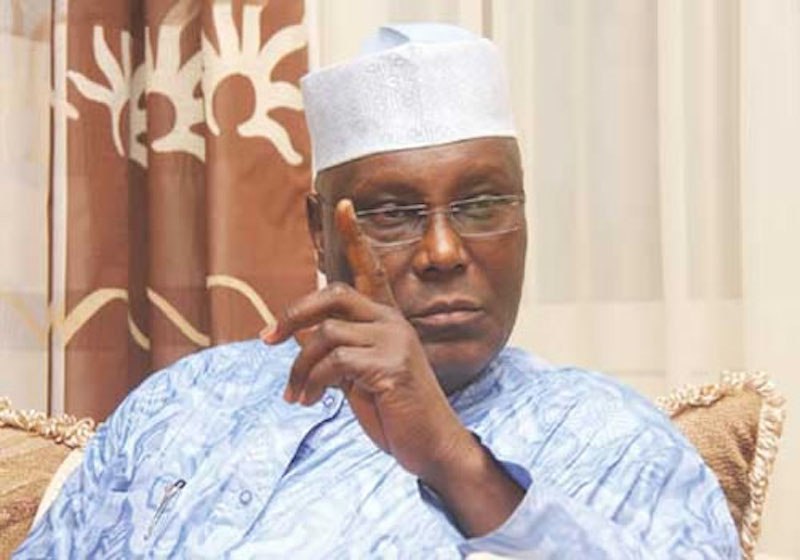By Eric Elezuo
“On behalf of our Advisory Board, staff, our 9,360 beneficiaries, and all well-wishers, we congratulate our Founder, Tony Elumelu, as well as all other laureates on this well-deserved honour.”
It was no surprise when the business world woke to the news that the Chairman, United Bank for Africa and Tony Elumelu Foundation (TEF), Tony Elumelu, has been recognised on the Times 100 List of Most Influential People in the World. He was named among only three other Africans on the list.
Elumelu’s recognition comes on the heels of the his Foundation’s 10th Anniversary slated for November. it would be recalled that in 2011 and 2012, he was listed by New African Magazine as one the 100 most influential people in Africa and Africa’s 20 Most Powerful People by Forbes Magazine, respectively.
His recognition, according to a statement released by the Tony Elumelu Foundation, is in honour of the worthy entrepreneur’s commitment to empowering a new generation of African entrepreneurs, catalysing economic growth, driving poverty eradication and ensuring job creation across all 54 African countries, through his work at the Tony Elumelu Foundation.
Vintage Tony Elumelu is the Chairman of Heirs Holdings, the United Bank for Africa, Transcorp and founder of The Tony Elumelu Foundation. A Nigerian national honours holder, the Commander of the Order of Nigeria (CON), and Member of the Order of the Federal Republic (MFR). It worth noting that Tony successfully held the fourth edition of his annual Tony Elumelu Foundation Entrepreneurial Forum with about 54 African countries participating.
Born Tony Onyemaechi Elumelu on March 22, 1963, in Jos, Nigeria, the economist by training, visionary entrepreneur and philanthropist, acquired and turned Standard Trust Bank into a top-five player in Nigeria. In 2005, his corporate reputation as an African business leader was sealed when he led the largest merger in the banking sector in Sub-Saharan Africa to acquire United Bank for Africa (UBA). In five years, he transformed it from a single-country bank to a pan-African institution with over seven million customers in nineteen African countries.
In 2011, New African magazine listed him as one of the 100 most influential people in Africa, and a year later (2012), he was recognised as one of “Africa’s 20 Most Powerful People” by Forbes Magazine.
Following his retirement from UBA in 2010, Elumelu founded Heirs Holdings, which invests in the financial services, energy, real estate and hospitality, agribusiness, and healthcare sectors. In the same year, he established the Tony Elumelu Foundation, an Africa-based and African-funded philanthropic organisation dedicated to the promotion of excellence in business leadership and entrepreneurship, and to enhancing the competitiveness of the private sector across Africa.
His stated objective at the formation of Tony Elumelu Foundation was to “prove that the African private sector can itself be the primary generator of economic development.” The Foundation is charged with the mission of driving Africa’s economic development by enhancing the competitiveness of the African private sector. As a premier pan-African-focused not-for-profit institution, the Tony Elumelu Foundation is dedicated to the promotion and celebration of entrepreneurship and excellence in business leadership across the continent, with initiatives like The Tony Elumelu Entrepreneurship Programme (TEEP)
In a bid to expand his conglomerate as well as his business horizon, in 2011, through Heirs Holdings, he acquired a controlling interest in the Transnational Corporation of Nigeria Plc (Transcorp), a publicly quoted conglomerate that has business interests in the agribusiness, energy, and hospitality sectors. Elumelu was subsequently appointed chairman of the corporation.

Chairman, UBA Mr Tony Elumelu address the AGM
His enterprise is not limited to self financed enterprises as he serves as an advisor to the USAID’s Private Capital Group for Africa (PCGA) Partners Forum. He also sits on the Nigerian President’s Agricultural Transformation Implementation Council (ATIC). He is also vice-chairman of the National Competitiveness Council of Nigeria (NCCN) whose formation he was a key driver in, and serves as Co-Chair of the Aspen Institute Dialogue Series on Global Food Security.
Elumelu additionally chairs the Ministerial Committee to establish world-class hospitals and diagnostic centres across Nigeria, at the invitation of the Federal Government and the Presidential Jobs Board, engineered to create 3 million jobs in one year. He also serves as a member of the Global Advisory Board of the United Nations Sustainable Energy for All Initiative (SE4ALL) and USAID’s Private Capital Group for Africa Partners Forum.
One will not be wrong to address him as a philosopher as well as he is the originator of the term Africapitalism. According to him, Africapitalism is an economic philosophy that embodies the private sector’s commitment to the economic transformation of Africa through long-term investments that create both economic prosperity and social wealth. Elumelu sees Africans taking charge of the value-adding sectors and ensuring that those value-added processes happen in Africa, not through nationalisation or government policies, but because there is a generation of private sector entrepreneurs who have the vision, the tools and the opportunity to shape the destiny of the continent. He insists that Africapitalism is not capitalism with an African twist; it is a rallying cry for empowering the private sector to drive Africa’s economic and social growth.
Having studied under Professor Michael Porter at Harvard Business School, Elumelu subscribes to Porter’s concept of Creating Shared Value (CSV). Professor Porter is the Founding Patron of The Tony Elumelu Foundation. In the same vein, CSV refers to the idea that “companies must take the lead in bringing business and society back together.” It asserts that “businesses acting as businesses, not as charitable donors, are the most powerful force for addressing the pressing issues (society) face(s).”
In 2003, the Federal Government of Nigeria granted Tony Elumelu the title of Member of the Order of the Federal Republic (MFR), a national honour, and in 2006, he was voted African Business Leader of The Year by the Africa Investor magazine and was also recognised as African Banker of the Year in 2008 by the African Banker magazine. In 2009, the Nigerian President Umaru Musa Yar’adua honoured him with a place on the Presidential Committee on the Global Financial Crisis.
In 2012, he was awarded the prestigious National Honour of Commander of the Order of the Niger (CON) for his service in promoting private enterprise. Apart from being recognised as one of “Africa’s 20 Most Powerful People in 2012” by Forbes Magazine as well as being featured in the New African Magazine’s list of the “100 Most Influential Africans in Business”. He was awarded an honorary Doctorate of Science degree from the Benue State University and an honorary Doctorate of Business Administration from the University of Nigeria, Nsukka.
In 2013, Elumelu received the Leadership Award in Business and Philanthropy from the Africa-America Institute (AAI) Awards. He was also named African Business Icon at the 2013 African Business Awards.
In addition, ESI-Africa, frequently described as “Africa’s power journal”, named Elumelu in its 2015 ‘ESI Most Influential Figures in African Power’ list, in January 2015.
Elumelu is not just a financial wizard; he also writes as well as provides incredible inspiration to writers. Some works that involves him include:
How to Excel at Work – Proven strategies for achieving superior work performance by Bili A. Odum – a book inspired by Elumelu’s work ethics.
Elumelu has contributed to the Nigeria Leadership Initiative White Papers, writing on Leveraging private sector approaches in transforming government delivery.
The Power of Vision: Insights on Tony Elumelu is a testimonial compiled on the occasion of his retirement as Group Managing Director/Chief Executive Officer at the United Bank for Africa. It contains messages from Aliko Dangote, former Nigerian President Olusegun Obasanjo, Professor Michael Porter, former World Bank managing director and Nigeria’s Minister of Finance, Ngozi Okonjo-Iweala, President of Sierra Leone; Ernest Bai Koroma, former United States Comptroller of the Currency, Eugene Ludwig and Sanusi Lamido Sanusi, former Governor of the Central Bank of Nigeria.
He has written about his philosophy and the economic development of Africa for several publications around the world including The Economist, the Wall Street Journal and Financial Times.
The TOE Way: A handbook that offers insights into Elumelu’s philosophies, business practices, values and secrets of success, written by the man himself.
Tony Elumelu is happily married to Awele Vivian Elumelu, who he married in 1993, and they are blessed with five wonderful girls; Nneka, Ugo, Ogor, Oge and Onyinye.
It will not be worthwhile to end this article without stating the humble philanthropist’s one of most important quotes:
“Everything I have today is because of Africa, I was born here, went to school here, I work here and I’m achieving some level of financial comfort here.”
Sir, for your steadfastness in business and transformation of lives as well as unleashing the Midas magic to anything you are involved in or touched, and not forgetting making the prestigious list of Times 100 Most Influential People in the World, you deserve once again to be our Boss of the Week.
Congratulations sir!

 News5 days ago
News5 days ago
 Featured6 days ago
Featured6 days ago
 Sports2 days ago
Sports2 days ago
 News5 days ago
News5 days ago
 Opinion6 days ago
Opinion6 days ago
 Opinion6 days ago
Opinion6 days ago
 The Oracle4 days ago
The Oracle4 days ago
 National5 days ago
National5 days ago












